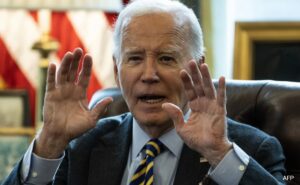

Industry estimates state that Scope 3 emissions represent, on average, 75% of a company’s greenhouse gas emissions (GHGs). And while many organizations have made strides in reporting direct and indirect emissions (Scope 1 & 2), the complexity of mapping Scope 3, makes it elusive.
For India, achieving our net-zero targets’ hinges on managing the elusive. The Science-Based Targets initiative (SBTi) provides a solid framework, but the challenges are undeniable: fragmented supply chains, inconsistent data, and the complexity of engaging multiple tiers of suppliers make tracking and reporting Scope 3 emissions a monumental task.
As we take a future-back approach, I strongly believe organisations that manage carbon well will earn significant competitive advantages.
On our end, we’re addressing this challenge with a holistic strategy that is replicable for the consumer goods industry. Here’s our playbook:
Driving Sustainable Sourcing: Agri-supply inputs are typically the largest contributor to value chain emissions. We’re tackling this through initiatives like supply shed mapping and promoting regenerative agriculture practices across our sourcing hubs. By prioritising local suppliers, enhancing transparency, and conducting lifecycle assessments of agri input materials, we can better track and reduce emissions and water use. Through our recently launched regenerative agriculture program, we’re working with farmers community to improve soil health, biodiversity, and water efficiency while cutting emissions.
Reimagining Packaging: Packaging is more than a vessel— it’s the first handshake with our consumers, a promise of quality, and an emblem of our iconic brands. We’re rethinking packaging from the ground up, making it ‘sustainable by design.’ By embracing Pack Positive principles, we focus on the 4 R’s: Reduce packaging through lighter materials and optimised designs, Reuse materials to extend its lifecycle, Recycle by increasing recycled content and ensuring recyclability, and Replace carbon-intensive materials with sustainable alternatives. This approach also addresses end-of-life treatment of sold products, by better managing and reducing their emissions.
Advancing Sustainable Logistics: How we move and deliver products plays a crucial role in reducing emissions. We’ve optimised logistics movements by improving container fill and load efficiency, selecting optimal transport routes and modes, and sourcing locally to minimise delivery distances. We’re committed to low-carbon transport, working with our logistics partners to identify emissions-efficient options, and collaborating to drive real change.
Bringing the Ecosystem Along: Collaboration isn’t optional — it’s essential. Tackling Scope 3 emissions requires a collective effort, harnessing the specialised expertise of partners. We’re actively engaging with suppliers, farmers, NGOs, and technical institutions — to share knowledge, implement best practices, and drive sustainability across our value chain. We’ve also launched programs with our suppliers to improve their operational efficiencies, promoting best practices on reducing energy consumption and transition to use of renewable fuel and power systems. By working together and driving innovation across our ecosystem, we’re not just meeting targets — we’re accelerating progress toward a sustainable future.
Measuring Impact: It’s important to prioritise identifying high-emission hot spots and tackle them through targeted decarbonisation programs. To measure value chain emissions, we map supplier-specific data, industry averages, and spend-based calculations, ensuring transparency. Over time, as data quality improves, we aim to refine our emissions inventory, deepening confidence in our commitments to reduce our carbon footprint.
The path to net zero may be complex, but it is within reach. What is needed is for the consumer goods industry to unite, playing a central role in India’s journey to net zero. The way forward is clear: bold action, unwavering innovation, and collaborative progress.
—The author, Jitendra Mahajan, is Chief Supply and Sustainability Officer at Diageo India. The views are personal.



